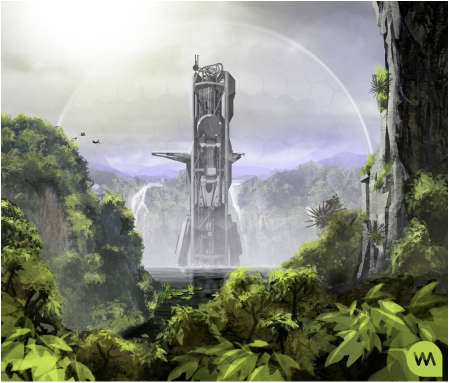Intro
Throughout last few centuries, humans have fostered the expansion of urban landscapes. Economic, scientific and cultural progress is considered an integral aspect of the modern city reality. Cities, as illustrated by the planet Coruscant in Star Wars are, supposedly, the future. Besides the belief that they symbolise advancement, however, what do we know about cities? They hasten the break down of cultural boundaries, increase mobility, opportunity and wealth. On the negative side, they are the major contributors to pollution, crime and unsustainable resource consumption. City atmospheres, ironically, encourage isolation and apathy. The fact is, cities are just too big.
Urbanization without limits threatens environmental and social bonds. As people become increasingly divorced from their food sources and natural landscapes they lose touch with the fabric of reality. We may change a tree into a table but its origins remain the same. Humans now live in a world largely manufactured by other humans but they can only begin to fathom the mechanisms that ultimately govern the planet. When humans began shaping the environment to their desires, they started to see their relationship with nature as antagonistic. Yahweh’s words in the Bible echo this ingrained notion of superiority: “And God blessed them. And God said to them, ‘Be fruitful and multiply and fill the earth and subdue it and have dominion over the fish of the sea and over the birds of the heavens and over every living thing that moves on the earth” (The Creation of the World).
Moving towards a sustainable future where humans do less damage to the environment goes hand-in-hand with improving social issues. Creating resilient communities is one of these social challenges. Achieving self-sufficient pockets of humanity who maintain authority over their personal lives while also participating in the state of the global community have either been ignored or brushed under the rug in favour of ever-expanding industrial growth. Despite corporate and individual dedication to it, the vision of limitless expansion is false and spells only disaster for humanity. The catastrophic events following an environmental flat line can only be estimated but even those are bleak. Therefore, embracing positive communal shift is a way of ensuring happier people and a healthier world.
Works Cited
Lucas, George, dir. Star Wars Episode II: Attack of the Clones. Twentieth Century Fox, 2002 . Film.
“The Creation of the World.” The Holy Bible Douvay Version. Ed. Bishop Challoner. London: Catholic truth Society, 1963. Genesis 1:28. Print.

 RSS Feed
RSS Feed
